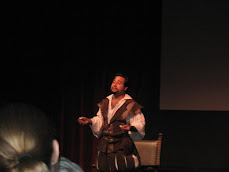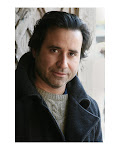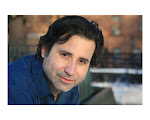`PICASSO' PLEASANT, BUT VERY UNEVEN
EXTENDED MONOLOGUES A STRONGPOINT
From Richmond Times-Dispatch
Date: May 20, 2000
Author: Roy Proctor
Early in TheatreVirginia's uneven production of Steve Martin's "Picasso at the Lapin Agile," the young Albert Einstein (Richard Ruiz) examines a drawing on a scrap of paper.
"I never thought the 20th century would be handed to me so casually," he muses after a long pause. "Scratched out in pencil .*.*. tools thousands of years old, waiting for someone to move them in just this way."
The audience silence is appropriate and profound.
Even though the 1904 happenings in the real Paris bar in Martin's play are fictional, we have that spine-tingling feeling that we're standing on the threshold of modern history.
That drawing was made by the young Pablo Picasso (Chaz Mena), who will arrive soon at his favorite Montmartre haunt.
Picasso was beginning to attract a following in his "blue period." He was only three years away from painting his revolutionary cubist masterpiece, "Les Demoiselles d'Avignon," which turns into an emblem at the back of the stage before the final fade.
Albert Einstein was totally obscure in 1904 - he worked in a patent office in Switzerland - but his moment would come even sooner. He was only a year away from publishing "The Special Theory of Relativity," which would revolutionize science as thoroughly as "Les Demoiselles d'Avignon" would upend art.
Einstein apparently never set foot in Paris - much less the Lapin Agile, which still exists - in 1904. But Martin's fictional situation is a clever conceit for a play that is philosophical, absurdist, sophisticated and cornball by turns.
At bottom, "Picasso at the Lapin Agile" is a comedy on the edge of farce. Call it a happy valentine to the 20th century.
Some of those profound silences have their effect.
Too often in George Black's staging, however, they are symptoms of legitimate laughs missed in a production that often runs short of energy, lacks a compelling directorial vision and is finally a matter of each actor fending for himself for shine.
Martin is at his best in extended monologues, and some of the actors run with these to great effect.
Listen to Picasso's art dealer Sagot (Allan Hickle-Edwards) hold forth on the reasons people won't buy paintings picturing either sheep or Jesus.
It's a hoot.
Hear Einstein expound on the virtues of baking an E-shaped pie.
In Ruiz's telling, it's delectable.
Or revel in several company members as they speculate on changes the new century will bring and hit on everything from Hiroshima being "completely modernized" to "a craze for automobiles" that will pass.
Martin also springs some nice surprises toward the end.
A "time traveler" (Scott Duffy) arrives in blue suede shoes and proves to be about as startling as the transformation of the pharaoh in "Joseph and the Technicolor Dreamcoat." The bar's walls finally break away to reveal a starry sky full of promise for the young century.
|





















No comments:
Post a Comment